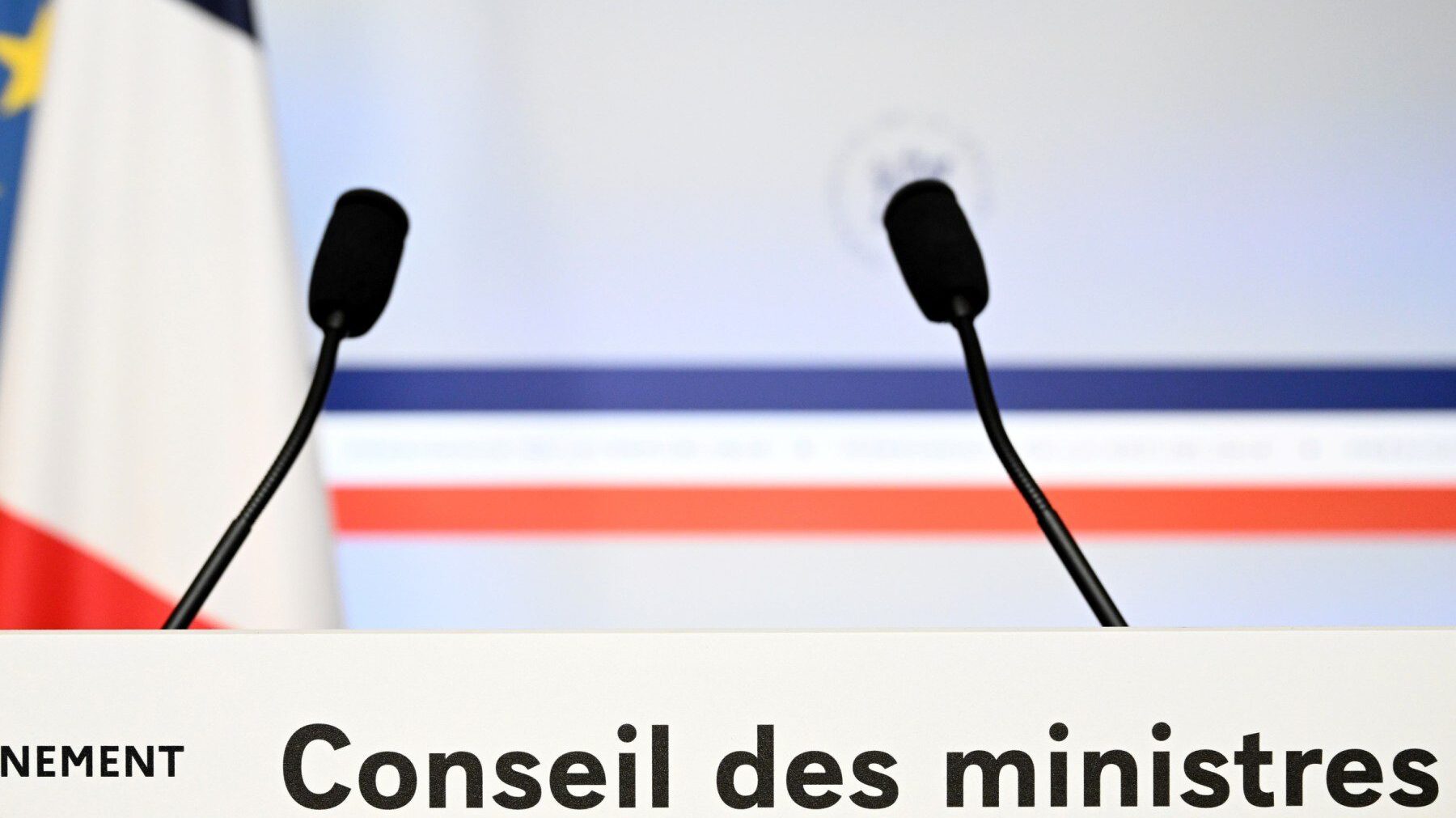
The logo on the lecturn that reads Conseil des ministre at the Elysee Palace in Paris.
Photo: by Bertrand GUAY / AFP
In April 2023, in an attempt to bring closure to the turbulent vote on pension reform, Emmanuel Macron made a televised address in which he promised “one hundred days” (Cent-jours) of appeasement and renewal of his political action. Now that the deadline has passed, the appeasement is far from over, and the prospects of a cabinet reshuffle are becoming clearer in the run-up to France’s national holiday on July 14th.
On Monday, April 17th, the French President took the floor in an attempt to draw lessons from the harsh months of social conflict that had just passed in France. He once again defended his pension reform, deeming it “necessary,” saying he “regretted” that it had not been “accepted” and that a “consensus” had “not been reached.”
“We have before us one hundred days of appeasement, unity, ambition and action in the service of France,” concluded Emmanuel Macron at the time, announcing that he would meet “on July 14th” to “take stock of the situation.”
At the same time, he set out a new roadmap for Élisabeth Borne’s government, with three priorities: work, republican order, and progress. Vague and abstract notions, and as far as republican order is concerned, the latest events following the death of young Nahel have provided a cruel denial of these noble intentions.
Under these conditions, rumours of a dissolution are becoming more and more precise and insistent, and the announcement of the composition of a new government could be made by July 14th, or just after the bank holiday. Several questions remain, however.
The first is whether Prime Minister Élisabeth Borne will remain in office or be replaced. She says she is “confident” that Emmanuel Macron is satisfied with the work accomplished during the famous Hundred Days.“The balance sheet is there, the laws have been passed, most of the projects are in the green, we’re making progress,” she assured the daily Le Parisien in an interview.
Her confidence and self-assurance are, however, at odds with the general feeling against her in the country: in a recent poll, 6 out of 10 French people said they no longer wanted Élisabeth Borne at the head of the government, even if they did not agree on the profile of her potential successor. In the event of Élisabeth Borne’s departure, the question arises of the political colour of the person who would replace her: would Emmanuel Macron then choose to lean more to the Right or more to the Left? The dilemma remains unresolved.
In the event of a reshuffle, the general consensus is that the ministers most likely to leave are Education Minister Pap Ndiaye and the much-contested Marlène Schiappa. Pap Ndiaye has been conspicuous in recent months by his incompetence and his inability to feel the urgent challenges of the moment for his ministry. The riots brought him back to centre stage as a matter of urgency, but clearly not with the intensity that Emmanuel Macron would have been entitled to expect in response to a crisis that obviously has an essential educational basis. As for Marlène Schiappa, she is currently drowning in the scandal of the Marianne Fund, a fund launched in April 2021 to “promote the values of the republic,” which would have mainly benefited a few phantom associations at her initiative.
All this is still at the hypothesis stage. According to Minister of Labour Olivier Dussopt, “those who talk know nothing, and those who know say nothing.” More fundamentally, this reshuffle, which will be carried out without enthusiasm, will crown several months of Emmanuel Macron’s inability to politically convince people of the relevance of his course.
